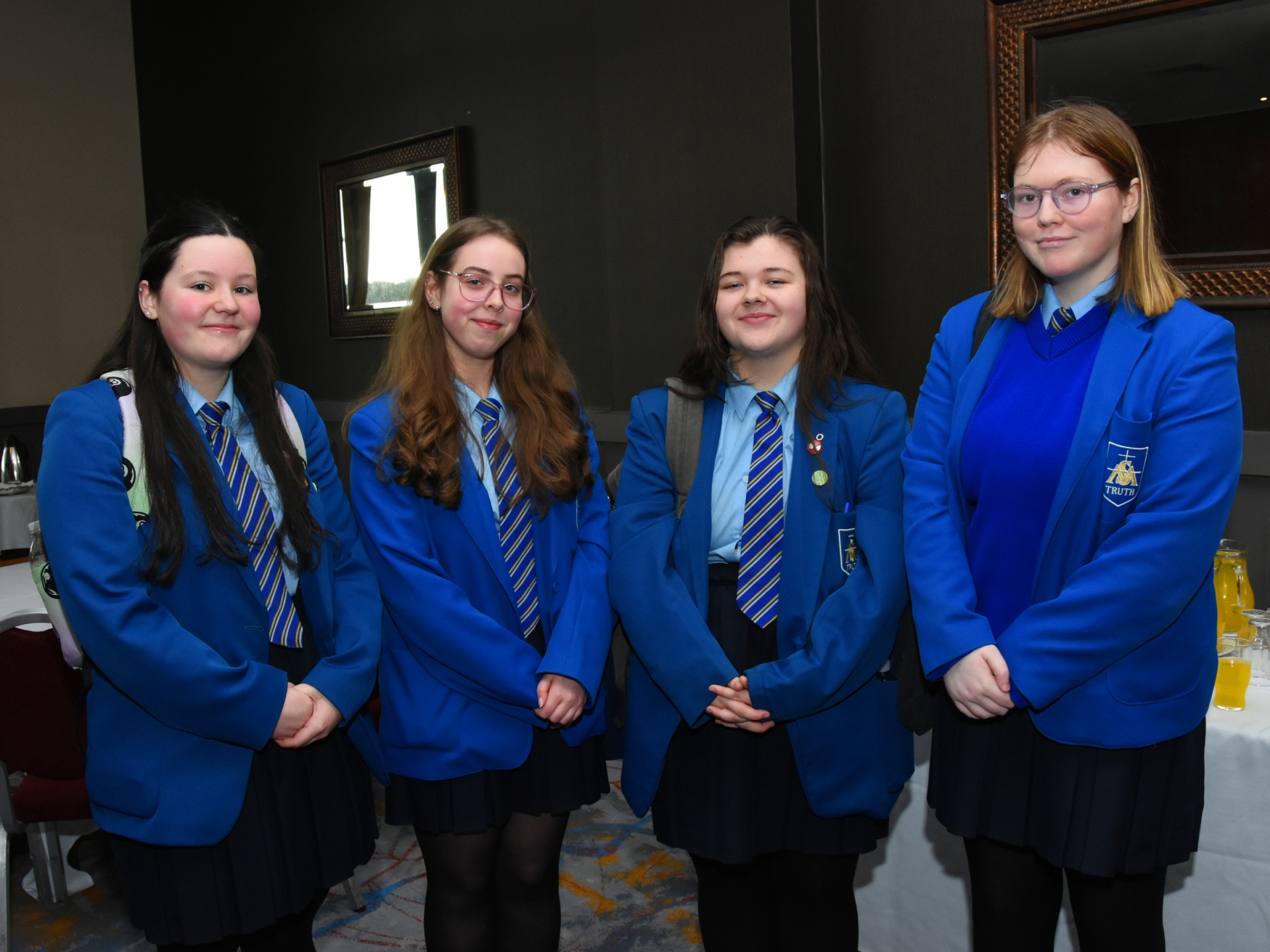
St Mary's College student Kaycee Deery pictured with St Mary's Principal Brendan McGinn.
An inspirational young Derry woman was one of the keynote speakers at Hive Cancer Support’s World Cancer Day conference.
Held in the City Hotel last week, St Mary’s College GCSE student Kaycee Deery spoke about her research into sunscreen.
Kaycee was awarded the UK Young Scientist of the Year 2023 title at the Big Bang Science Competition in Birmingham for her project: “The Investigation, Development and Evaluation of Natural Sunscreen Preparation”.
Speaking to Derry Now she said: “My project investigated natural oils, such as olive oil or flaxseed oil, to try and find a more sustainable solution for sunscreen.
“Shop-bought sunscreens are harming the environment due to the nanoparticles - such as titanium dioxide and zinc oxide - present in them. By using natural oils from the environment, the environment would not be harmed.
“With the commercial sunscreens, when people go into the shower or the pool, they wash off and go back to the ocean and harm marine life and coral reefs.
“So, by using natural oils from the environment, when they feed back to the ocean, they won’t harm the marine life because they are from the environment itself and they contain no harmful chemicals.”
Kaycee began her research by looking at natural oils including rapeseed oil and sunflower oil.
She tested her products against UVA (Ultraviolet A light) in a home-made light box. UVA causes skin damage, resulting in a tan.
“I found that the oils that had the lowest percentage transmittance were olive oil, flaxseed oil, vitamin A oil and vitamin E oil.
“I subsequently mixed these four oils together in different ratios and made them stronger again and tested them once more against UVA.
“After I had done that, I moved on to UVC, which is filtered out by the ozone layer and kills bacteria. I tested it against living cells such as the bacteria E. Coli K12.

St Mary's College students: Kaycee Deery, Grace Dornan, Brianne McColgan and Aoife O'Hagan. (Pics: Kerrie Quinn, nwpresspics)
“Once I tested them against the E. Coli K12, I found the sunscreens didn’t work just yet but that is okay because I have now started to investigate Lycopene. Lycopene is found in the skin of tomatoes and it gives it red colour.
READ MORE: Derry cancer research to be presented at international conference
“The structure of Lycopene enables it to filter out UV light and when you add vitamin E to Lycopene, it snaps the structure back into place, so, by having both present in an oil, it would be able to continuously filter out UV light.
“So, I started extracting Lycopene from the tomatoes but it was a tedious process. I then found shell capsules that had Lycopene and vitamin E in them and I started to cut open these capsules and dilute them with sunflower oil. I found the most concentrated solution I have made can achieve SPF of up to 150.”
Once she has figured out the correct concentrations and SPFs, she would like to test again, against UVB and UVC.
“Hopefully, if I get it to work against those, then I will have a natural sunscreen that is marketable.”
Kaycee said she was delighted to attend the Hive World Cancer Day conference because her background research had looked at skin cancer.
“The nanoparticles in commercial sunscreens harm the environment and the other particles in them can actually harm skin and cause skin damage.
“But without sunscreen, skin damage and skin cancer can also be caused. It is a necessary requirement that we need, but I would like to find a more eco-friendly solution.”
Subscribe or register today to discover more from DonegalLive.ie
Buy the e-paper of the Donegal Democrat, Donegal People's Press, Donegal Post and Inish Times here for instant access to Donegal's premier news titles.
Keep up with the latest news from Donegal with our daily newsletter featuring the most important stories of the day delivered to your inbox every evening at 5pm.